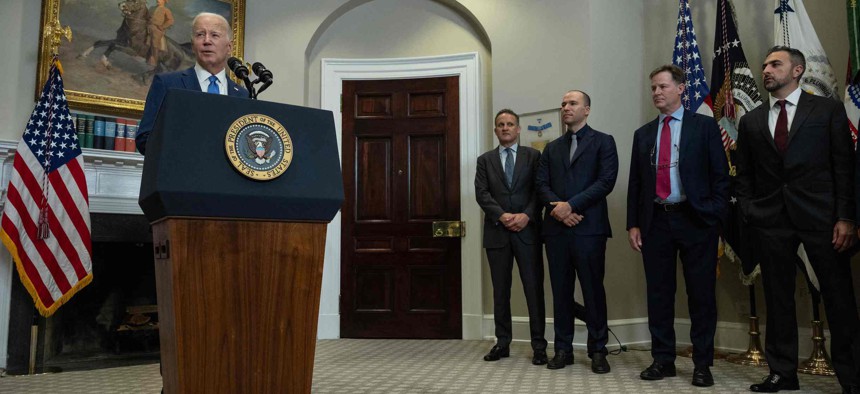The Biden administration of the United States has outlined plans to combat the intellectual gap in AI technology, which they will achieve by hiring 100 AI professionals by summer. This program, named after Vice President Kamala Harris, comprises one component of the broader strategy developed by the Office of Management and Budget (OMB) within the White House, which aims to enhance AI safety and security through government agencies.
White House drives federal AI implementation and skill enhancement
The effectiveness of the new federal AI policy is mainly linked to the outline of the safeguard measures that the federal agencies will implement and the methods for improving transparency.
Under the context of the executive order, the federal government is underlining both the portrayal of the promising opportunities of the AI itself and the fact that the existing federal employees should be armed with the skills and the training to make it through the ever-changing context.
The administration stresses this diffusion of AI competencies against the fact that the role of AI will be prominent in the future job scenery of federal employees. The OMB director, Shalanda Young, urged the government to ensure it is taking a proactive approach to adapt to AI technologies and skill the existing workforce to take advantage of AI technologies.
By giving this support, agencies can improve employees’ skills to fill the gaps and create a talent-nurturing culture internally.
The government’s dedication to tripling its AI skills supply by the 2025 fiscal year President’s budget is further enhanced by a five million dollar allocation for creating a governmentwide AI capacity-building project by 2025. When the prior year’s efforts were considered, this initiative saw almost 5,000 participants from 78 agencies, which could be viewed as evidence of the comprehensive AI competence building.
Global imperatives and competitive landscape
Against international developments, such as the European Union’s recent approval of the EU AI Act, discussions surrounding AI regulation have gained momentum. With stakeholders across industries and geographical boundaries advocating for the advancement of AI skills, the race to secure top talent in this field has intensified.
Job seekers with proficiency in generative AI can command a significant salary premium, with Indeed reporting a nearly 50% increase in compensation compared to their counterparts. This disparity in supply and demand has prompted organizations, including the federal government, to reconsider compensation strategies and prioritize initiatives to attract and retain AI talent.
Driving AI advancement White House’s proactive strategy
As the United States government doubles its commitment to AI advancement, the announcement of plans to recruit 100 AI professionals signals a proactive stance in addressing the skills gap.
With a focus on upskilling existing employees and bolstering recruitment efforts, federal agencies are poised to navigate the complexities of AI integration while maintaining momentum in their pursuit of innovation.
The administration’s allocation of resources toward expanding AI training programs underscores its recognition of the pivotal role that workforce development plays in shaping the nation’s AI strategy.
As global conversations around AI regulation evolve, the United States remains steadfast in its determination to lead the charge in AI innovation, leveraging its talent pool to drive progress and competitiveness on the world stage.





